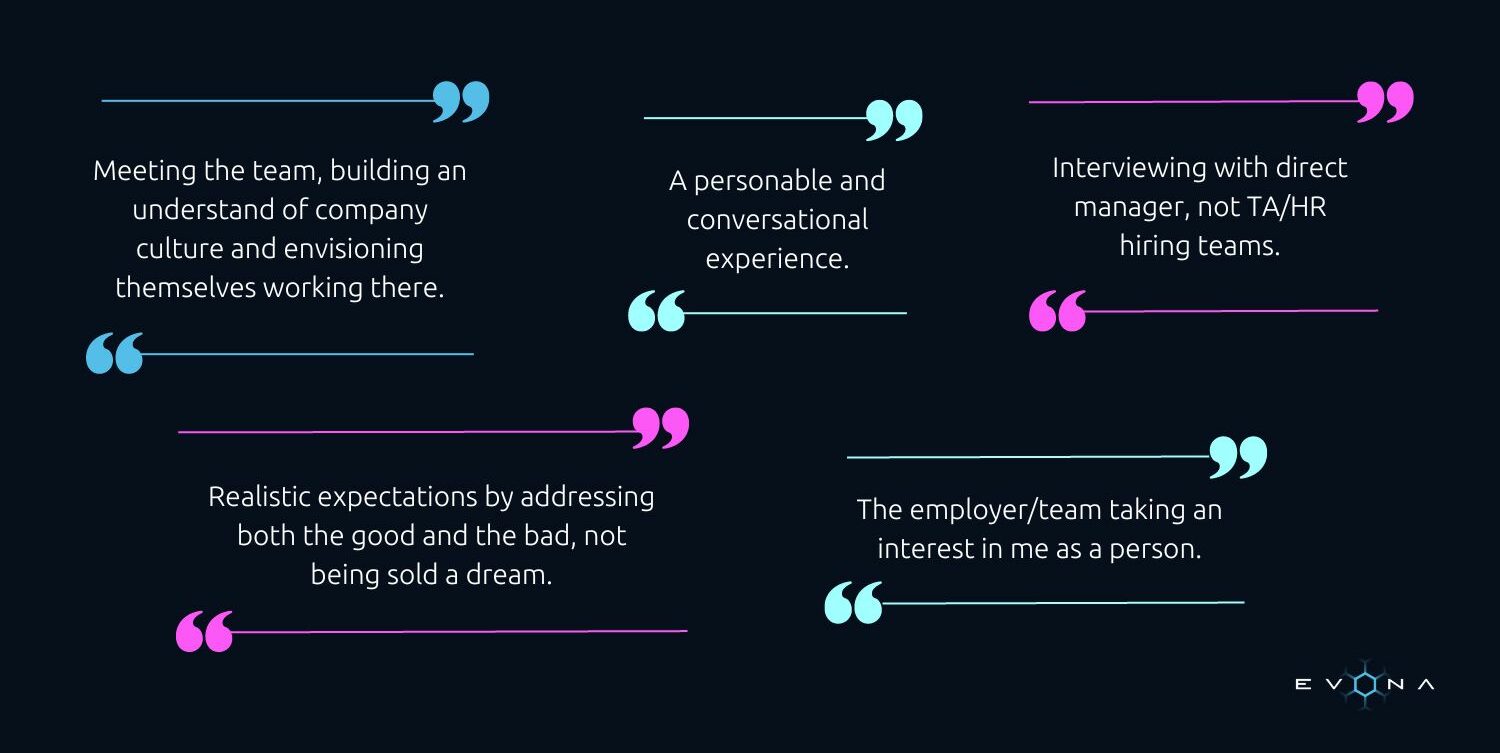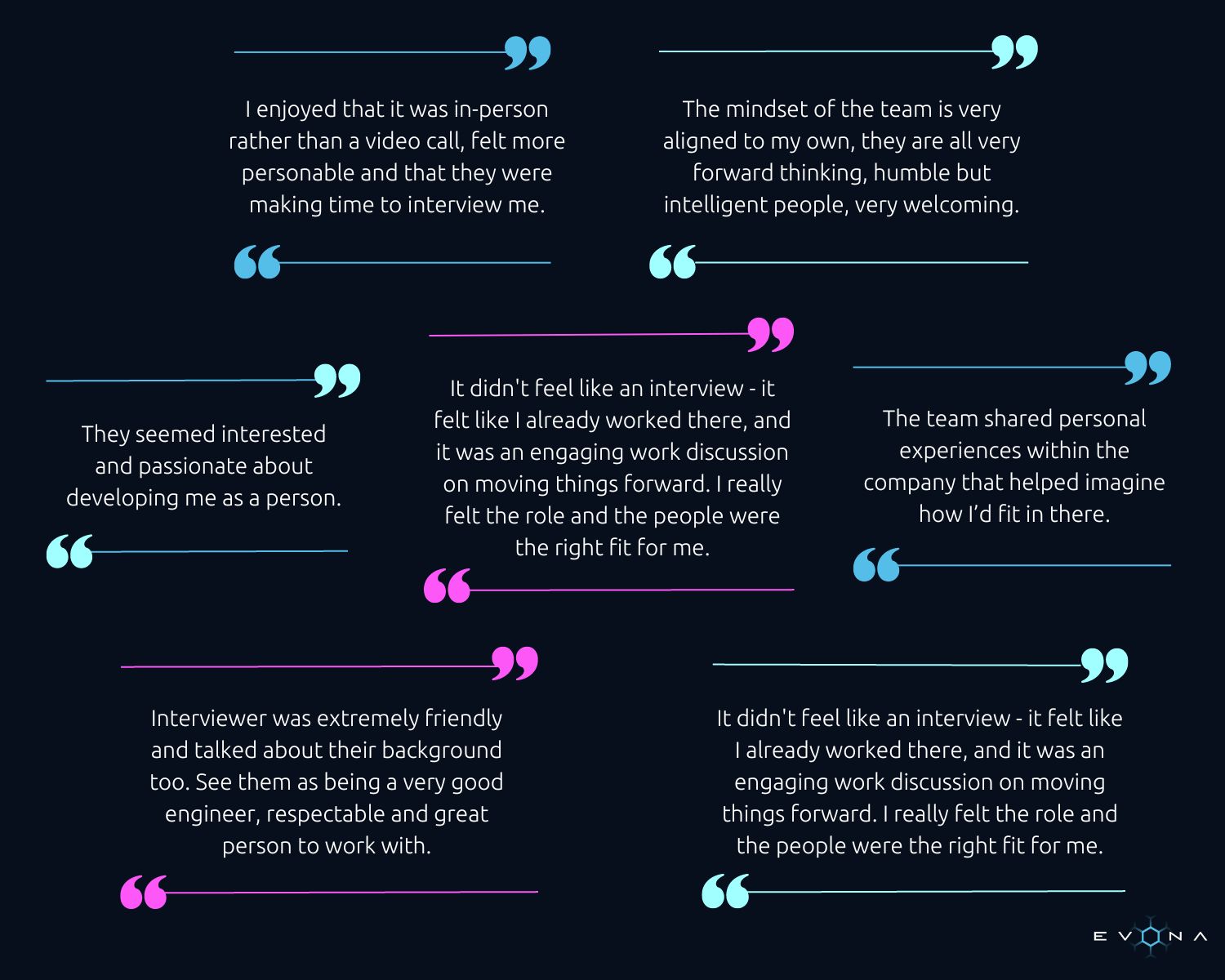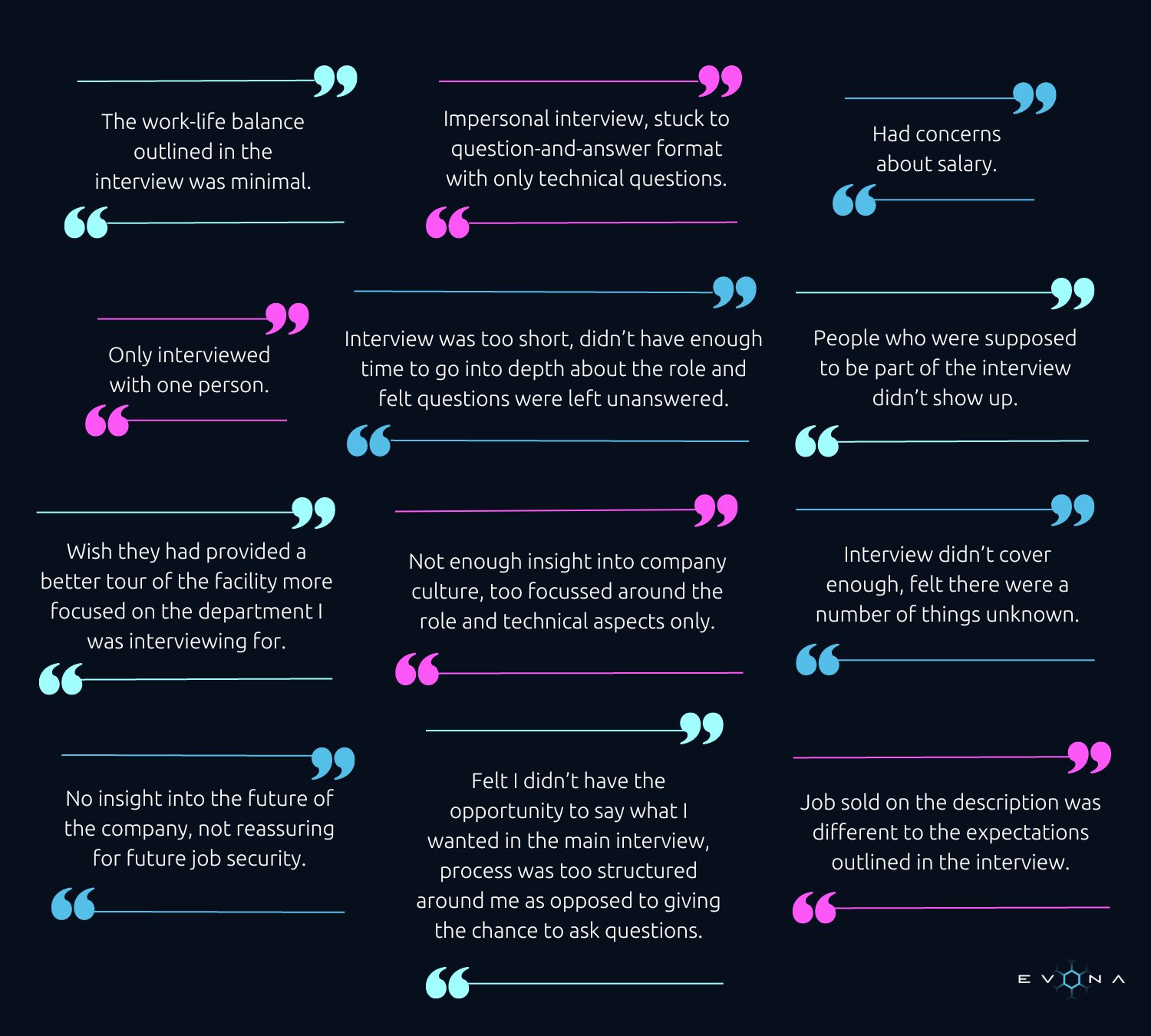Creating an Exciting Interview Experience: Best and Worst Practices From Real Candidate Feedback
In today’s competitive job market, interviews serve as an employer’s first opportunity to make a positive impression on candidates and showcase their company culture, values, and brand.
As job seekers become more discerning about the type of roles and companies they want to work for, organizations must recognize the growing power of candidates in the interview process. To attract the best talent, organizations must create an interview process that not only assesses the candidate’s suitability for the role but also ignites their excitement about working for the organization.
At the heart of this lies the need to genuinely excite candidates about the prospect of working for your company during the interview process. Job seekers are now looking beyond just the job itself and desire a supportive and engaging environment aligned with their values. By effectively communicating your company’s unique strengths and values during the interview process, you can create a sense of excitement and enthusiasm that encourages top talent to join your team.
Employers can gain a competitive edge by accessing our exclusive data, gathered directly from candidates themselves. Through pre- and post-interview feedback, we’ve gained valuable insights into what truly motivates and excites potential hires about joining an organization, and what does the opposite. Our data offers a comprehensive and accurate understanding of the candidate’s perspective, enabling organizations to identify areas for improvement in their interview process. By leveraging our unique data set, employers can develop practical strategies that create a memorable and engaging interview experience, ultimately increasing the chances of attracting and retaining top talent.
HOW MANY COMPANIES DO PEOPLE INTERVIEW WITH WHEN LOOKING FOR A JOB?
Most candidates were in interview processes for 2-3 jobs when seeking a new role – these companies are in direct rivalry for said candidates. The interview process is each employer’s chance to stand out from their competitors.
The exceptions to this were those applying to their ‘dream job’ who had no previous intention of leaving their current role. These candidates were only interviewing for one specific job.
Candidate expectations pre-interview:

Positive interview feedback from candidates:

Interview best practices:
- Encourage a personable and conversational experience to create a comfortable environment that allows the candidate to showcase their skills and experience. This also helps assess the candidate’s interpersonal skills, which are essential for building a strong team and company culture.
- Show interest in the candidate as a person to make them feel valued and respected. It allows gaining insight into the candidate’s motivations and personal qualities, which are crucial when considering their fit with the company culture.
- Provide a realistic expectation of the job by addressing both the good and the bad. This helps candidates have a clear understanding of what they can expect from the role and the company and can prevent misunderstandings that can lead to dissatisfaction or turnover.
- Share personal experiences within the company to help candidates envision themselves working there. This creates a more engaging and memorable experience and leaves a positive impression of the company culture, increasing the candidate’s likelihood of accepting an offer.
- Allow candidates to ask questions to gain a better understanding of the role and the company and address any concerns or uncertainties they may have. It also demonstrates that the interviewer values the candidate’s opinions and perspectives.
- Offer an in-person interview to create a more personable experience that allows candidates to experience the company culture and work environment first-hand. This helps create a relaxed and engaging atmosphere and build a stronger connection with the candidate.
- Ensure that the interview covers enough information about the company culture, job description, and future job security. This helps candidates make an informed decision about whether the role and the company are a good fit for them and demonstrates the interviewer’s commitment to creating a positive experience for the candidate.
Negative interview feedback from candidates:

Interview worst practices:
- Conduct overly structured interviews that do not allow candidates to ask questions or express themselves fully. This can create a one-sided conversation that does not fully explore the candidate’s skills, experience, and motivations, leaving a negative impression of the company culture and the interviewer’s interpersonal skills.
- Fail to offer enough information about the company culture, job description, and future job security. This can create uncertainty and confusion for the candidate, leading to dissatisfaction and turnover, and leave a negative impression of the company’s transparency and commitment to creating a positive experience for candidates.
- Hold short interviews that do not allow the candidate to answer all their questions or express themselves fully. This can prevent the interviewer from gaining a full understanding of the candidate’s skills, experience, and motivations, leaving a negative impression of the company’s commitment to creating a positive experience for candidates.
- Not showing up or being unavailable for the interview. This can create frustration and disappointment for the candidate, leaving a negative impression of the company culture and the interviewer’s professionalism.
- Offer a job that is different from the expectations outlined in the interview. This can create confusion and disappointment for the candidate, leading to dissatisfaction and turnover, and leave a negative impression of the company’s transparency and commitment to creating a positive experience for candidates.
- Fail to provide an adequate tour of the facility, especially if the role involves working on-site. This can prevent the candidate from gaining a full understanding of the company’s work environment and facilities, leaving a negative impression of the company’s commitment to providing a positive experience for candidates and employees. A facility tour can help the candidate visualize themselves working for the company and provide important context for the role and company culture.
As our data highlights, creating a positive candidate experience is crucial for employers looking to attract top talent and build a strong team. By prioritizing transparency, communication, and personability throughout the interview process, employers can help candidates envision themselves working at the company, feel valued as individuals, and make informed decisions about their future. This data proves that candidates appreciate honesty, openness, and opportunities to connect with potential team members and understand the company culture. Employers should also strive to address all aspects of the job, including potential challenges and opportunities for growth, and provide a realistic picture of the role to set candidates up for success if they join the team.
By taking steps to create a positive and informative interview process, employers can not only attract the right candidates, but build a positive reputation as an employer of choice in their industry.